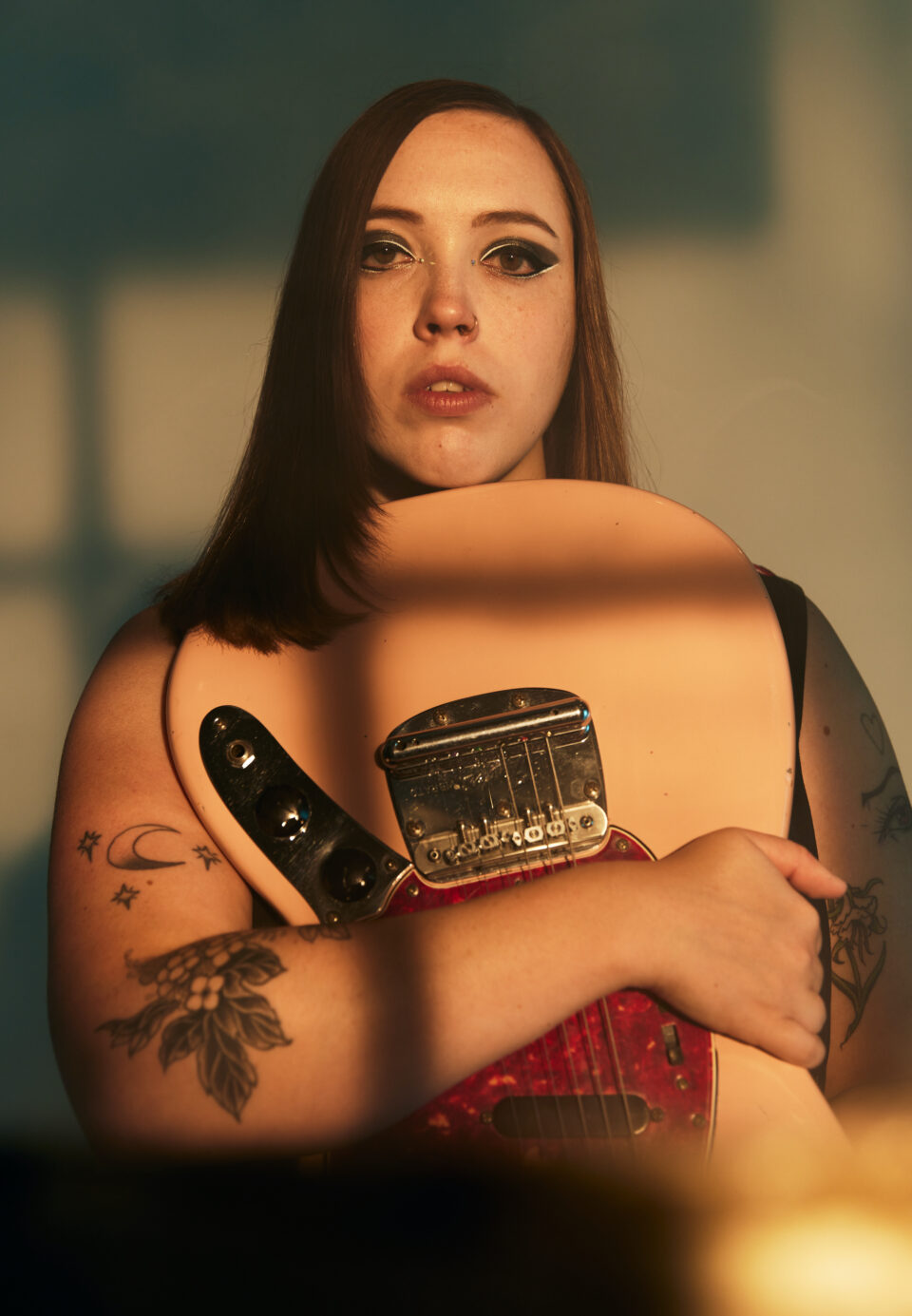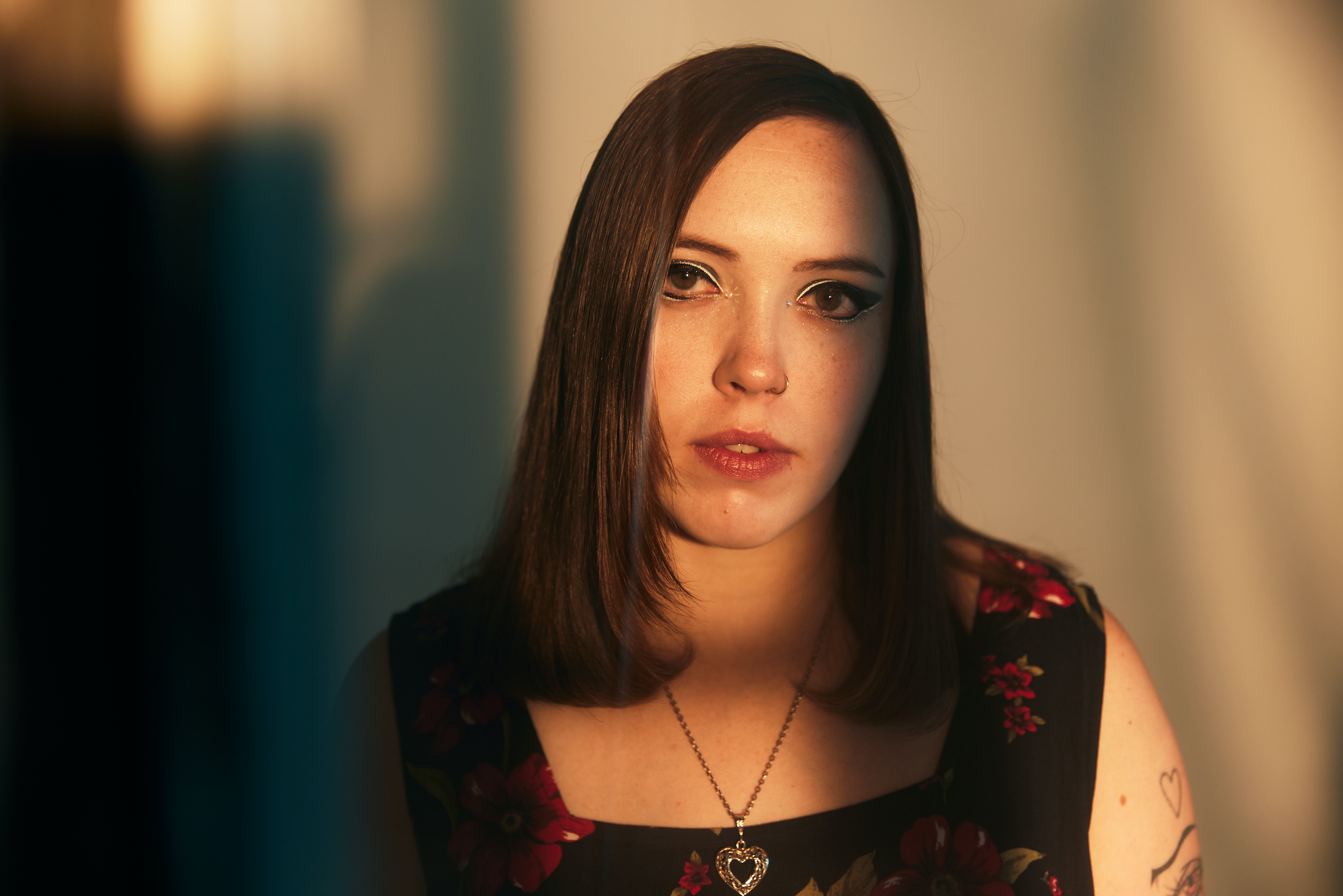Sophie Allison will also be taking over FLOOD FM for our “Hacked” series at 10 a.m., 1 p.m., 5p.m., and 10 p.m. PST from July 11 through 15 for a guest DJ takeover featuring hand-picked tunes and commentary. Mark your calendar and tune in here.
Just two weeks before the world went into lockdown, Sophie Allison was caught up in the rush of releasing her second album, Color Theory. The singer-songwriter was primed to hit the road as she’d done consistently for the past three years. It was something she’d gotten used to ever since her indie-rock project Soccer Mommy had found outward success—the thrill of living in and out of tour buses and hotel rooms where she’d regularly end up watching reruns of the police procedural Castle. But as exciting as a near-constant wave of gigs could be, it was also exhausting. So when the pandemic hit, a life brimming with new venues in a rotating list of cities every night transformed into something much quieter and drastically different.

Design by Jerome Curchod
And Allison needed it. Since the release of her 2018 debut studio album Clean, her life had been in overdrive. “Up until Color Theory came out, there hadn’t really been a break since I left college,” Allison says over the phone from her home in Nashville. “I had been going really hard for a long time, and I definitely was not in the best place.” While Allison inarguably enjoys the music-playing aspect of her job, the fame aspect of it was challenging for her. “It happened very fast and it was very rough on me,” she sighs.
“It’s a lot of weight—not even to have people hating on you, but to have people that love you.”
Like her singer-songwriter peer Mitski, the 25-year-old musician had once been extremely online and had developed a relatively engaged following for her sharp pop culture commentary and emotional outpourings. “I used to use Twitter a lot before I was even putting music online, and I continued using it like it was my account,” she recalls. “Eventually it just wasn’t my account anymore.” She felt the same way about the visibility of her Instagram, too. “I could post a photo of my cat and someone would post, ‘I’m so excited to see you in Georgia,’” she explains. “But I’m trying to talk to people I went to high school with.”
While there was nothing wrong with getting comments from fans, her accounts just felt like they belonged to the public and not to Sophie Allison the individual. For her, it was healthier to not see people’s opinions and commentary on her. “They’re very nice, but it’s a lot of weight,” she says, “not even to have people hating on you, but to have people that love you.” She lamented the time when music was just the focus.
So as much as the pandemic was full of uncertainty and obvious terror, it ended up being a much-needed break for Allison—and her Soccer Mommy persona—who hadn’t had a chance to slow down. Taking a step back, Allison was also able to enjoy breezy rides in her Ford pickup truck and buy a home in the Nashville area, where she currently resides with her boyfriend of six years. After quite literally living out of a suitcase for years on end, by May 2020, she decided it was finally time to unpack.
“This is my life forever and none of this is ever going to stop. It’s trying to accept the idea that it’s not, but it’s also not constant. Everything is recurring, but not consistent.”
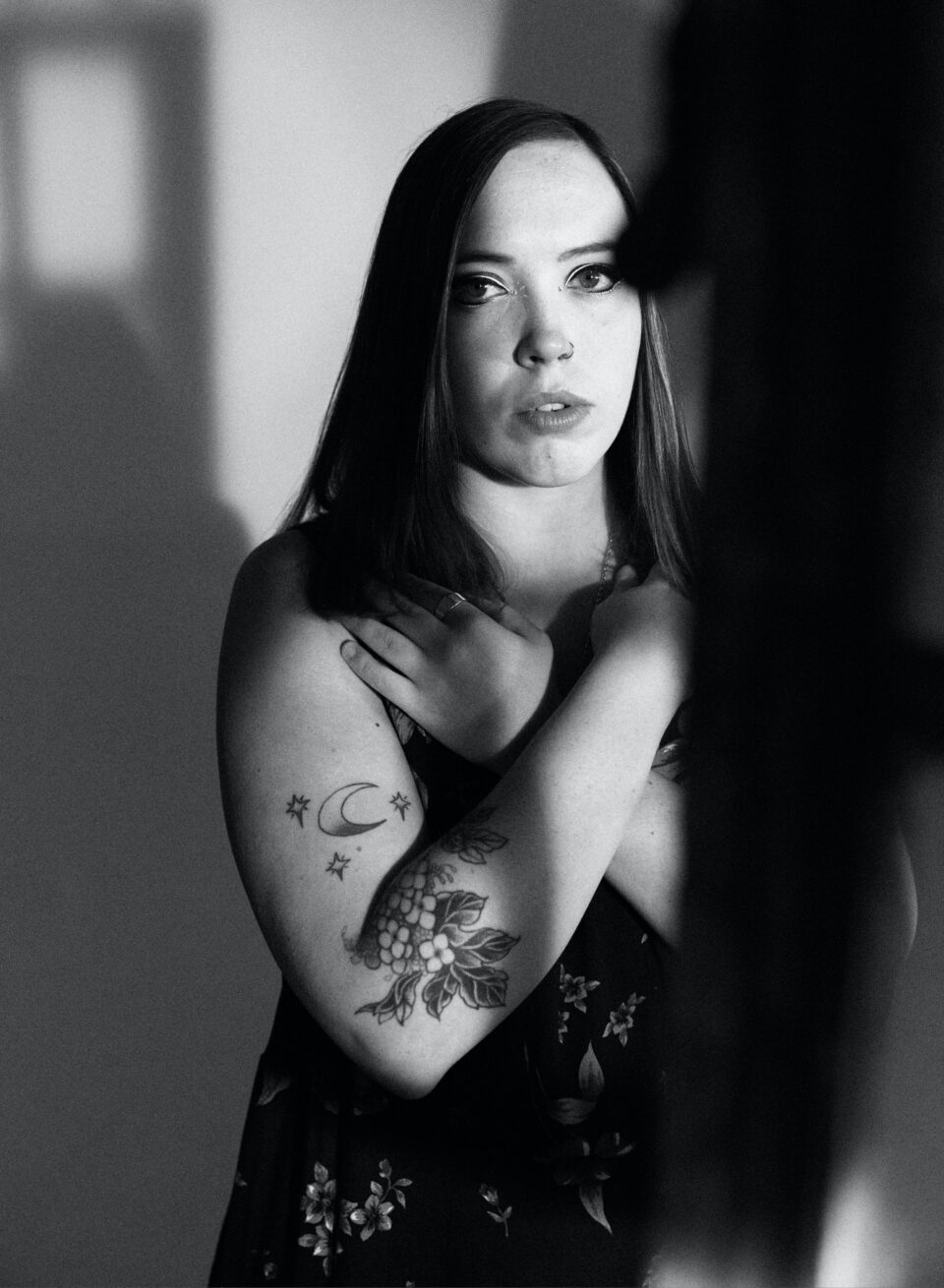
While she generally remained cautious and reclusive to avoid getting her family sick, she started to appreciate life’s simple pleasures. “I took it as an opportunity to be a normal person, do simple things I love, and hang out with my friends,” Allison explains. It also allowed her to be creative on her own terms—she was able to write music without feeling like she was working within a specific timeframe. While she certainly wouldn’t describe the pandemic as “nice,” it was healthy for her, personally, to not have to push herself and always be “on.” She could return to the simplicity of loving and making music on her own terms again.
Born in Switzerland but raised in Nashville to an elementary school teacher mother and neuroscientist father, Allison’s interest in music came at a young age. She began writing songs around five years old and continued from there. She grew up loving Avril Lavigne, Taylor Swift, and The Chicks. When she later attended the Nashville School of the Arts, she performed in a swing band. Right before heading to New York University in the summer of 2015, she uploaded her heart-wrenching bedroom pop EP Songs for the Recently Sad to Bandcamp under the moniker Soccer Mommy.
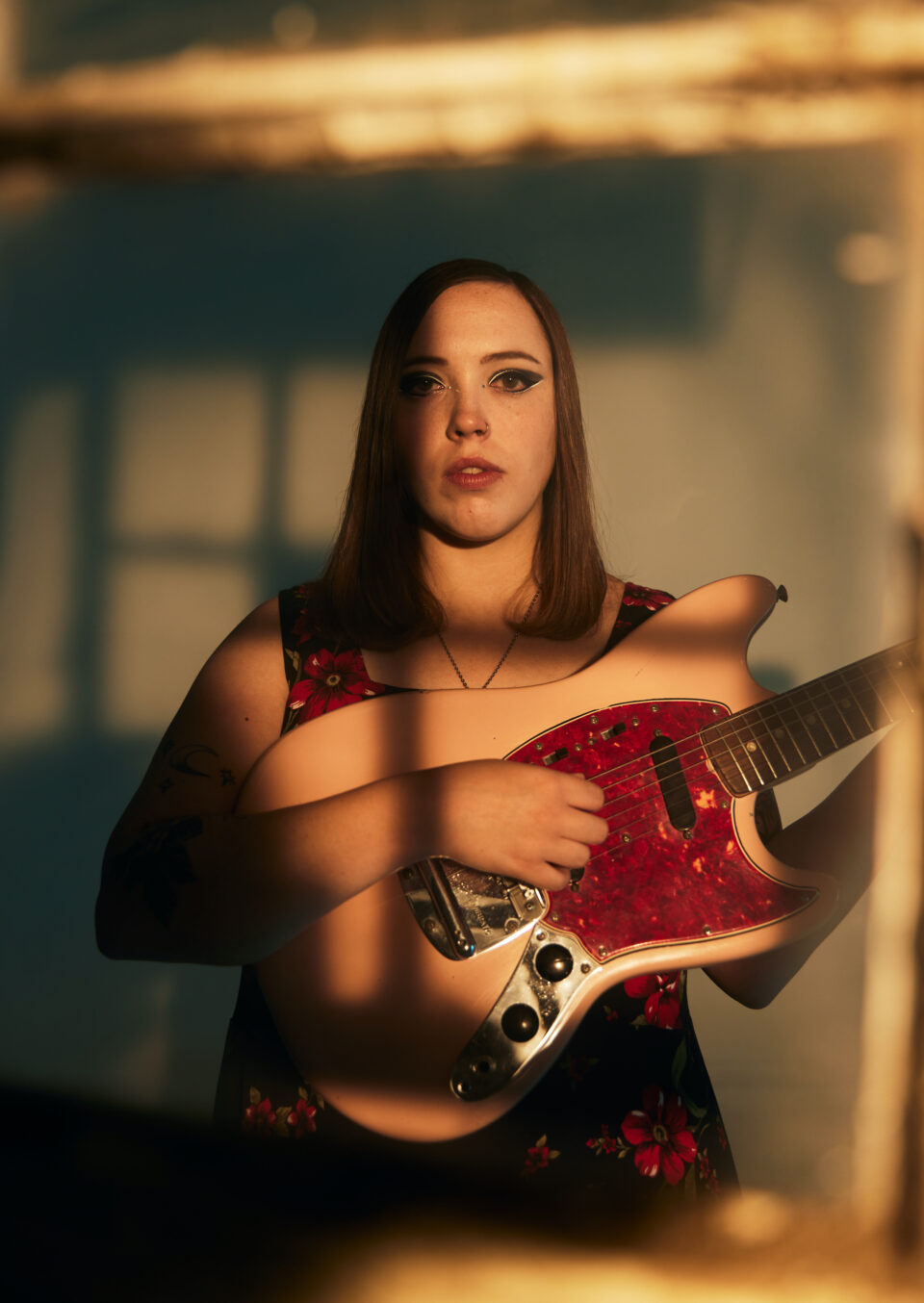
The next year, she shared another independently released record with For Young Hearts—this time through Orchid Tapes, the indie label that also helped launch Alex G’s career. Near the end of her sophomore year, she landed a record deal with indie imprint Fat Possum and moved back home. In 2018, she released Clean, a ’90s-alt-rock-tinged coming-of-age album that aptly captured the devastation of heartbreak and insecurity that young people often feel and catapulted Allison to moderate indie-rock fame. Not only did she have a critically acclaimed album on her hands, but she ended up touring with artists like Liz Phair, Paramore, and Kacey Musgraves. It wasn’t long until Allison would release her follow-up Color Theory, an album that dug deeper into the mental and emotional strife she’d endured and the pain of living with her mom’s terminal illness.
“I still want to make songs that are fun and poppy and have a different kind of energy, but also I want [to work with] someone who’s going to be able to take the songs that have a different vibe and treat them properly.”
While the album cycle halted, Allison forged ahead. It wasn’t long until she began working on what would become her third studio album, Sometimes, Forever—a title that focuses on the idea of recurring themes like moments of happiness, enlightenment, hopelessness, or depression, and how it’s easy to feel like “this is my life forever and none of this is ever going to stop. It’s trying to accept the idea that it’s not, but it’s also not constant,” says Allison of the album. “Everything is recurring, but not consistent.”
While Color Theory emerged from a very specific idea, with Sometimes, Forever, it was more complex. “There’s a lot of back and forth between contrasting ideas, like a push and pull between all of these different feelings that can drown you, each on their own at different times,” Allison explains. “There’s a lot of reaching for hope, but then hopelessness, battles between feeling completely numb and accepting that and feeling too much, love and feelings of thinking the world is pointless.” What remains constant is her deeply vulnerable songwriting about loneliness, depression, heartbreak, love, and existence.
When Allison tries to think about the album now, the timeline is a complete blur. That’s what the past two years did. After some mind-mapping, she realizes the summer of 2020 was when she wrote “Still,” the first song of what would become her third album. The track, which she hesitates to dive too deep into, is somewhat emblematic of the title of the album: “feeling overwhelmed by your emotions—like everything is coming at you all at once and caving in.” On the song, Allison details the numbing effects of depression and self-harm that haunt her: “I cut a piece out of my thigh / And felt my heart go skydiving / It got me high for a little while / I still don’t know what I was thinking / But I did it still.” By fall, Allison recalls writing a few more of the songs. But the bulk of the LP was penned in March 2021 after quarantine.

“I don’t think all of it has to be heavy, no pop influence, no dancing. You can take that kind of stuff and make it like fucking Depeche Mode.”
To help execute Allison’s vision, she enlisted Daniel Lopatin—a.k.a. Oneohtrix Point Never—the iconoclast largely known for his experimental electronic and ambient work. Also regarded for his wide-ranging and often unexpected projects, Lopatin is the mastermind behind the soundtracks for the Safdie brothers’ movies Good Time and Uncut Gems and The Weeknd’s 2020 retro-pop record After Hours. “I was really excited and intrigued by the idea of asking Dan because this is someone who can bring in this extra element,” explains Allison. “I still want to make songs that are fun and poppy and have a different kind of energy, but also I want someone who’s going to be able to take the songs that have a different vibe and treat them properly.”
The production really pushed Allison’s sonic vision into motion—she already knew that Sometimes, Forever wasn’t solely going to reflect the ’90s-alt-rock ethos that had been a throughline in her previous work. There are undoubtedly notes of bubblegum pop within the record, but Allison gets grittier, weirder, and more industrial-leaning in some of the songs. “I don’t think all of it has to be heavy, no pop influence, no dancing,” she notes. “You can take that kind of stuff and make it like fucking Depeche Mode.”
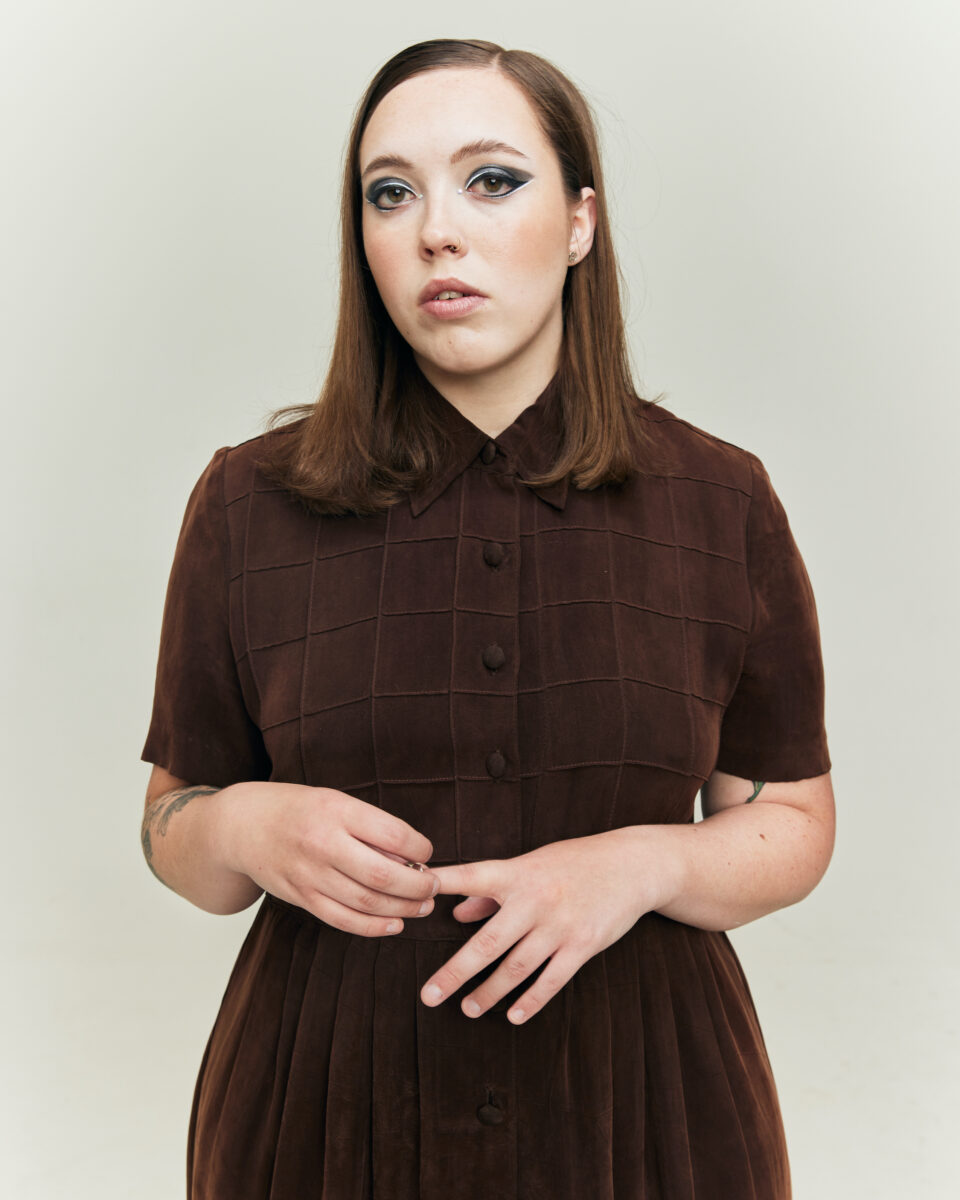
Songs like “Unholy Affliction,” an industrial-leaning track about striving for perfectionism under the crushing weight of capitalism; “Darkness Forever,” a spooky, slow-burner about suicidal ideation; and the enigmatic ghost story “Following Eyes” were intentionally meant to capture a “heavy, creepy” feeling. By adding parts of demos to the songs—like a vocal or a synth part—Allison and Lopatin were able to curate the darker vision. “So much of it was from [Dan’s] amazing brain, but the vibes were going to be that way [even] if I had gone with a pop producer,” says Allison.
“I just want to make music and tour. I don't really want to have to do anything else. I think you can make a very conscious decision to not be at big events and be part of some culture getting attention all the time.”
Still, there are a handful of tracks on Sometimes, Forever that veer in the opposite direction and feel as if they were written for a romantic comedy. According to Allison, that’s not exactly untrue. She’d been asked to pen a song for a Netflix rom-com—though she can’t remember which one. The result was “Bones,” a dreamy grunge track about the dwindling of a relationship and self-hate. “I’ve bled you out and patched you up again / Far too much to call it love,” she confesses on it. But right after she sent it to Netflix, she decided she wanted to keep it for herself.


Next, she penned “Rom Com 2004” and sent it over. But, again, she decided she wanted to release it on her own. “Feel It All the Time” evokes the romanticism of Sharon Van Etten’s open-road love letter “Seventeen” but shifts focus to her pickup truck. “I was honestly thinking about the way I feel driving my truck and that feeling of lightheartedness,” she explains. While she thinks it might sound “goofy,” she wanted to write about “having the wind through your hair and feeling like the world is not here with you right now.” The result is a metaphor comparing her body to her truck. Despite feeling very broken down and exhausted by everything in the world, she wished she could have the feeling of freedom and ease that she gets while driving.
It’s also not much of a departure from what Allison wants for her career, especially after slowing down over the past few years. “I just want to make music and tour,” she admits. “I don't really want to have to do anything else.” The public-facing elements of her job—and the fame of it all—aren’t appealing to her. But she’s set boundaries for herself. “I think you can make a very conscious decision to not be at big events and be part of some culture getting attention all the time,” she explains. Allison wants to make music that lasts—that shows off her versatility in terms of genre and as a songwriter. So, right now, she’s solely focused on releasing Sometimes, Forever and hoping it offers her longevity as an artist. “I don’t want it to fade away after a year or two,” says Allison. “I want it to be something that people can return to a lot.” FL
